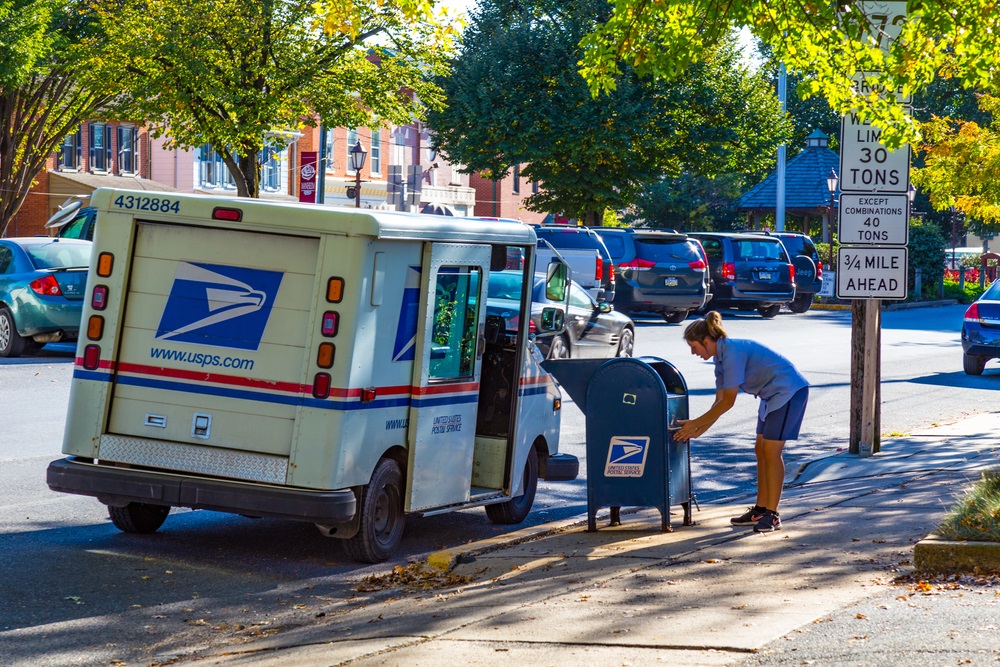Given the news that the US Postal Service could be privatizedit’s a good time to explore why privatizing postal delivery and opening it up to market competition is a sensible idea.
To begin with, it is useful to consider cases where privatization is possible unwise and why mail delivery is different. Many economists and political philosophers in particular are skeptical of privatization public goods– that is, goods characterized by non-excludability and non-rivalrous consumption. National defense is a classic example: when a military protects a nation from attack, for example through nuclear deterrence, all individual citizens enjoy that protection (non-excludability) and the protection of one person does not detract from the protection enjoyed by others (non-excludability). rival consumption).
But because individuals cannot be excluded from national defense once it is provided, they have little incentive to pay for it; instead, they prefer to piggyback on the contributions of others. Because everyone (or almost everyone) prefers free riding, the good is not delivered through voluntary market transactions. There is therefore a case to be made that national defense should be provided by the state.
Note, however, that this argument does not speak against the privatization of the post office. Postal delivery is not a public good. Crucially, postal delivery can be excluded: delivery companies can limit their services to paying customers. If you don’t purchase a DoorDash subscription, DoorDash will not deliver your food. If you do not pay FedEx to deliver your package, your package will not be delivered. If you do not put a stamp on your letter, the United States Postal Service will not deliver it.
From here, the positive arguments for privatizing postal delivery are clear. Competing private delivery providers have a strong incentive to provide fast, cheap and reliable services. After all, if their service is slow, expensive, or unreliable, customers can simply vote with their dollars and give their business to a competitor who does it better. This option is not available if the delivery provider is a government-run monopoly and thus the monopoly has a much weaker incentive to provide good service.
So why do so many people resist the idea of privatizing mail delivery, since it is a private good that can be efficiently provided by a free market, just like other delivery services like DoorDash? For example, Robert Reich says that privatizing the USPS is “A terrible idea that would sacrifice the public interest for private profits.” Here’s one possibility: status quo bias. We often irrationally prefer the status quo, not because it is better than change, but simply because it is the status quo. So maybe people are uncomfortable with the privatization of postal services simply because it disrupts the current state of affairs, even though disruption would be better.
To protect ourselves against status quo bias we can use the reversal test. That is, imagine if the status quo were reversed such that private, competitive mail delivery companies became the norm. We would have DoorDash for mail, Uber Mail, and so on. Would we like to return this arrangement to the de facto status quo of a government-run, monopolistic mail delivery service? Certainly not. Think of it this way: If you wouldn’t support nationalizing DoorDash and banning Uber Eats, Grubhub, and the rest of the competition in the food delivery industry, why would you support a similar model for mail delivery?
Now you might worry that just as Uber Eats won’t deliver buffalo wings to a customer if it isn’t profitable for them to do so, Uber Mail won’t deliver mail to a customer if it isn’t profitable for them to do so. As the American Postal Workers Union notes, unlike private delivery companies, there are “The USPS cannot walk away from unprofitable neighborhoods.”
But the claim that everyone has the right to mail delivery, regardless of its profitability, does not justify the nationalization of mail delivery. Remember, the most effective way to ensure everyone has access to groceries is not to nationalize grocery stores, but rather to provide people in poverty with SNAP benefits so they can shop at the grocery store of their choice. Similarly, the state could issue postal vouchers to people living in poverty or in particularly hard-to-reach areas. This system would preserve the benefits resulting from market competition and ensure universal access to postal delivery.
Christopher Freiman is Professor of General Business Administration at the John Chambers College of Business and Economics at West Virginia University.

